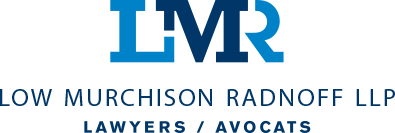Income for Child Support Purposes: Section III of the Child Support Guidelines

Topic: Family Law January 29, 2016 by LMR Website Team
It is the time of year when employees and investors receive T-slips detailing their earnings over the past year.
While most child support agreements do not call for a review of child support until May (or later into June or July), it is timely to reflect on the fact that there are certain adjustments to be made to a payor’s income, such that the payor’s line 150 income is not in fact his or her income for child support purposes.
Union Dues
A common deduction from income in the Ottawa area – with its concentration of government employees – are professional dues and/or union dues from a payor’s income for child support purposes.
Section 1(g) of Schedule III permits the deduction from income of dues and other expenses concerning income. The sub-section of the Income Tax Act referenced (paragraph 8(1)(i)) provides:
8 (1) In computing a taxpayer’s income for a taxation year from an office or employment, there may be deducted such of the following amounts as are wholly applicable to that source or such part of the following amounts as may reasonably be regarded as applicable thereto
(i) an amount paid by the taxpayer in the year, or on behalf of the taxpayer in the year if the amount paid on behalf of the taxpayer is required to be included in the taxpayer’s income for the year, as
(i) annual professional membership dues the payment of which was necessary to maintain a professional status recognized by statute,
(ii) office rent, or salary to an assistant or substitute, the payment of which by the officer or employee was required by the contract of employment,
(iii) the cost of supplies that were consumed directly in the performance of the duties of the office or employment and that the officer or employee was required by the contract of employment to supply and pay for,
(iv) annual dues to maintain membership in a trade union as defined
o (A) by section 3 of the Canada Labour Code, or
o (B) in any provincial statute providing for the investigation, conciliation or settlement of industrial disputes,
or to maintain membership in an association of public servants the primary object of which is to promote the improvement of the members’ conditions of employment or work,
(v) annual dues that were, pursuant to the provisions of a collective agreement, retained by the taxpayer’s employer from the taxpayer’s remuneration and paid to a trade union or association designated in subparagraph 8(1)(i)(iv) of which the taxpayer was not a member,
(vi) dues to a parity or advisory committee or similar body, the payment of which was required under the laws of a province in respect of the employment for the year, and
(vii) dues to a professions board, the payment of which was required under the laws of a province,
to the extent that the taxpayer has not been reimbursed, and is not entitled to be reimbursed in respect thereof;
Where the payor has paid the fee/due, was required to pay the fee/due and has not been reimbursed, professional fees and union dues are proper deductions from a payor’s income.
Dividends from taxable Canadian Corporations
Dividends from taxable Canadian Corporations are treated differentially under Schedule III. Section 5 of Schedule III provides:
Replace the taxable amount of dividends from taxable Canadian corporations received by the parent or spouse by the actual amount of those dividends received by the parent or spouse.
The actual amount of dividends from a Canadian Corporation can be found on Box 10 of the T5 statement. The taxable amount of dividends can be found at line 120 of the T1 General form.
This article has discussed but two of the adjustments to income contained within Schedule III of the Child Support Guidelines, if this is an area that impacts you, you should review Schedule III in its entirety. For assistance in determining your income for child support or your former spouse/partner’s income for child support please contact one of the lawyer’s in Low Murchison Radnoff LLP’s family law group.
[ssba]





